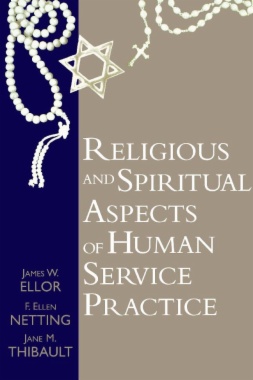Promotes the importance of understanding spirituality and religious belief in health and human service care
Although health and human service professionals traditionally receive extensive training in the emotional and physical aspects of caring for a person, they rarely receive adequate instruction in an area often as essential—spirituality and religious belief. Recognizing the importance of religion to a large share of the population, Religious and Spiritual Aspects of Human Services fills this gap in human services literature. James W. Ellor, F. Ellen Netting, and Jane M. Thibault address the challenge of understanding the client's perspective—even when it involves a religious tradition unfamiliar to the practitioner—and consider the impact of the client's needs on the agency and on public policy.
- Cover
- UNDERSTANDING RELIGIOUS AND SPIRITUAL ASPECTS OF HUMAN SERVICE PRACTICE
- Title
- Copyright
- Dedication
- CONTENTS
- Preface
- Acknowledgments
- Introduction
- PART I HISTORICAL INFLUENCES OF RELIGION ON HUMAN SERVICES
- Chapter 1 The Influence of Religious Groups on the Historical Development of the Helping Professions
- Chapter 2 The Influence of Religion on the Historical Development of Clinical Practice
- Chapter 3 Understanding the Diversity of Religious Groups in the United States
- PART II CLINICAL APPLICATIONS AND SELF-AWARENESS
- Chapter 4 Religious Diversity and Faith Development
- Chapter 5 Spiritual and Religious Concerns in Human Service Practice
- Chapter 6 Psychopathology of Religion and Spirituality
- Chapter 7 Religion and Spirituality of Human Service Workers
- PART III ORGANIZATION, COMMUNITY AND POLICY APPLICATIONS
- Chapter 8 Community and Religion in the United States
- Chapter 9 Religious Congregations and Human Services
- Chapter 10 Religiously Affiliated Human Service Agencies
- Chapter 11 Public Policy and Religion in the United States
- Epilogue
- Appendix: Course Outline
- Index
- ABOUT THE AUTHORS

